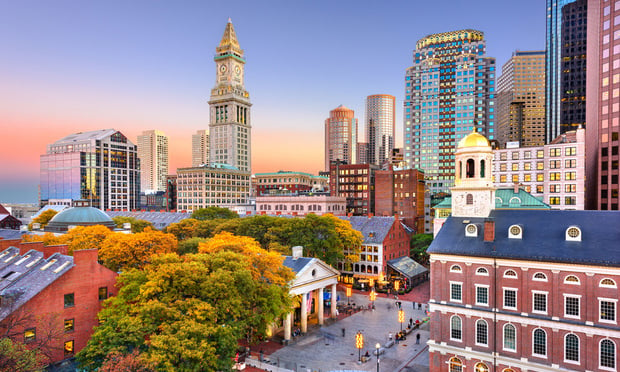The 424-room InterContinental in Boston's Seaport District, with its Italian marble columns, imported chandeliers from Prague and nightly rates starting at $350, is set to open Nov.1. The Regent Boston at Battery Wharf, a 150-room, waterfront hotel with 40 suites, a European-style spa and a $400-per-night rate, is expected to open its doors early next year. And the 168-room Mandarin Oriental Hotel, which mixes local flavor with Asian culture, is eyeing a 2007 opening on Boylston Street in the city's Back Bay.
Hotel analysts tell GlobeSt.com the boom in upscale hotels is fueled by the region's high land and construction costs that make it difficult for lower priced chains to build their presence in the market.
Matthew Arrants, the managing director for Pinnacle Advisory Group of Boston, tells GlobeSt.com that despite those high costs, the city's hotel market remains strong and is expected to stay that way in the future.
"The long-term prognosis for the Boston hotel market is quite good," says Arrants, noting that the region's strong economy, combined with the new convention center and key improvements in the city--most notably the completion of the Central Artery Project--have made the city a more appealing tourist destination.
But the boom in the hotel sector isn't just limited to new builds. Older four- and five-star hotels and boutique venues are being snapped up quickly and at steep prices.
In the past 12 months alone, Cambridge's landmark Radisson Hotel sold for $30 million to a joint venture partnership between Burlington-based Nordic Properties and Morgan Stanley; the Back Bay Hilton was acquired for $110 million by Highland Hospitality Corp.; and Hersha Hospitality Trust, which has been particularly active in the Greater Boston market, picked up five suburban properties. An Indian hotel firm also is reportedly in negotiations to buy the Ritz Carlton on Arlington Street at a price that could well be worth more than $800,000 a room, an industry source tells GlobeSt.com.
"There's more money chasing hotels right now," Stephen Kindl, vice president of the Northeast and Mid-Atlantic for the Plasencia Group Inc. tells GlobeSt.com. He notes that a strong return for investors, fueled by rising room and lodging rates, has made hotels a much sought after investment nationwide.
Boston's market, however, is particularly strong, he adds, because the city is among the top investment markets in the country. "There aren't that many transactions that occur in full service hotels on an annual basis," Kindl notes, "but when they do occur, Boston is one of the primary markets and because they don't occur too often, you get strong pricing."
Pricing should remain strong in the future, he adds, even with the addition of newer upscale product.
Want to continue reading?
Become a Free ALM Digital Reader.
Once you are an ALM Digital Member, you’ll receive:
- Breaking commercial real estate news and analysis, on-site and via our newsletters and custom alerts
- Educational webcasts, white papers, and ebooks from industry thought leaders
- Critical coverage of the property casualty insurance and financial advisory markets on our other ALM sites, PropertyCasualty360 and ThinkAdvisor
Already have an account? Sign In Now
*May exclude premium content© 2024 ALM Global, LLC, All Rights Reserved. Request academic re-use from www.copyright.com. All other uses, submit a request to [email protected]. For more information visit Asset & Logo Licensing.








